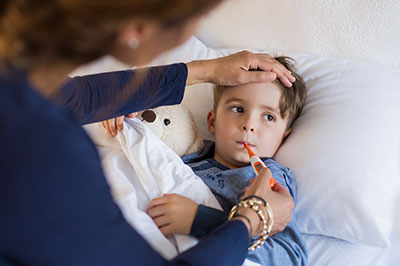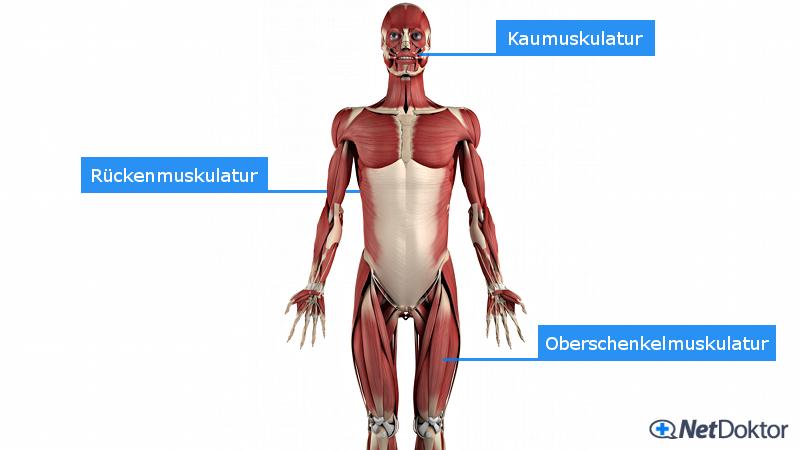Dizziness in the child is a normal phenomenon in childhood, which can occur, for example, at very hot temperatures, with fever or circulatory problems. Although it should be observed closely and must not occur frequently, it is not an independent disease and is often a harmless symptom.
Table of Contents
What is dizziness in the child?

Dizziness in the child is no different from the appearance in the adult. Affected children complain of balance and possibly accompanying visual disturbances. The proverbial "See black in front of your eyes" is also a common form of vertigo in children. It is not an independent disease, but often the accompanying symptom of an underlying disease or just a temporary symptom.
For example, dizziness in the child often occurs when playing and can also occur due to nausea. However, if the child’s dizziness occurs frequently and for no apparent reason, a doctor should be consulted for clarification.
causes
In childhood, dizziness is a common side effect of nausea, which can have many reasons – for example an intolerance to a certain food or a sensitive reaction of the digestive tract. Dizziness in the child occurs because all blood now gathers around the stomach to support possible vomiting.
It flows out of the brain, which leads to dizziness at this time "Black in mind" can lead. After vomiting, the child’s dizziness is usually over immediately. Fever, colds and infections also often lead to dizziness in the child. If it doesn’t drink enough during a cold or in case of diarrhea, dehydration is probably the trigger. However, if it occurs without such a reason or repeatedly, a doctor must be consulted to clarify serious causes and diseases of the brain.
Diseases
- Cardiovascular disease
- poisoning
- Cervical spine deformities
- Sudden Hearing Loss
- diabetes
- Inner ear inflammation
- sunstroke
- anxiety disorders
- depression
When to the doctor?
Dizziness in the child can occur as a one-time experience, for example after a heavy loss of fluid or physical exertion. This should then quickly disappear after a period of rest and hydration. Should go to the doctor one with the child, however urgent and promptly when the dizziness is very strong. Very severe dizziness in the child can lead to falls and lead to a circulatory breakdown.
On the other hand, a visit to the doctor for dizziness in the child is advisable if the dizziness occurs repeatedly. If the dizziness can no longer be attributed to a specific event, but occurs in a generalized manner, prompt neurological clarification is required.
Dizziness should be examined by a doctor the same day if it occurs in connection with another infection. For example, if a child has a fever and abdominal pain and is now complaining about new dizziness, a quick medical examination is necessary. Repeated dizziness in the child should first be addressed to the pediatrician. The doctor can carry out some basic examinations and, if necessary, refer them to a neurologist.
Diagnosis and course
To diagnose dizziness in the child, the child’s statement is usually enough. In many cases, the underlying disease is easy to recognize and explains the dizziness. The pediatrician may still check whether the affected child is dehydrated, as too little fluid intake explains most cases of dizziness in the child, especially with fever and diarrhea. If the cause is not clear, further investigations are undertaken to find out when the child becomes dizzy and what kind of dizziness it is.
Depending on where the child’s dizziness comes from, it runs differently. Harmless dizziness caused by playing with your peers resolves itself within a few seconds. A sip of water and a quiet moment while sitting can be helpful, as excitement can make dizziness even worse. Children are often very attacked by infections, so that the dizziness in the first days of the infection can arise briefly each time you get up.
It helps to stop for a moment, support the child, and take a few slow steps to help the circulation. Then the dizziness in the child should go away on its own and improve along with the infection. If the fever goes away, the dizziness is usually gone. If the child has to vomit, the dizziness shortly before can be very bad and, in particularly severe cases, can even lead to brief fainting. However, if the child has vomited, the dizziness has often disappeared on vomiting.
complications
Dizziness in the child can arise from a variety of causes, so that the possible complications can also be very diverse. In most cases, an infection is responsible for the dizziness. At the same time, there are various complications that should always be treated by a doctor. In many cases, an infection leads to severe headaches and an increased temperature. However, if appropriate drugs then these complications can be treated effectively and quickly. However, if treatment and the associated medication are completely dispensed with, the complications mentioned can worsen many times over.
Under certain circumstances, dizziness in the child can also be caused by an underlying illness. The possibilities in this regard are enormous, so that the side effects should be observed very closely. Other possible complications include nausea, vomiting, or chills. If these symptoms occur regularly over a certain period of time, then a doctor should be consulted very quickly. A doctor can make an accurate diagnosis and initiate appropriate treatment with the help of medication. In this way, various complications can be identified and treated at an early stage.
Treatment and therapy
Most triggers of dizziness in the child only need adequate hydration for treatment. In the event of fever, colds and infections, the doctor will prescribe bed rest, possibly antibiotics, expectorants and similar medications, and give the parents on their way to counteract the dizziness in the child with tea and water.
If the child cannot drink enough himself or does not want to, there is the possibility of admission to the hospital, where he will be given the drip. This form of treatment sounds serious, but it can provide the necessary help until, for example, very bad sore throat has subsided enough for the child to drink enough voluntarily.
It is different with diarrhea – if this causes dizziness in the child, depending on the severity, hospitalization is sometimes inevitable to treat the dehydration and thus the dizziness. If there is another physical disorder that explains the child’s dizziness, this is treated specifically and the dizziness improves together with the underlying disease.
RELATED ITEMS
-

Teething – causes, symptoms & treatment
There’s something wrong with Klein-Oliver. He cries lightly, he whines and leaves his favorite toy in the closet unnoticed. Has the child got it?…
-

Hard stool in children – causes, treatment & prevention
Hard bowel movements in children is a symptom that usually occurs in connection with constipation. Constipation is one…
-

Chills: causes, treatment, home remedies
Hanna Rutkowski is a freelance author for the NetDoktor medical editorial team. Chills (med .: Febris undularis) are known to many as harbingers of feverish…
-

Scarlet fever – treatment – prevention
Conventional medical treatment In the event of an infection with scarlet streptococci, conventional medical treatment is always given by a family doctor or pediatrician…
